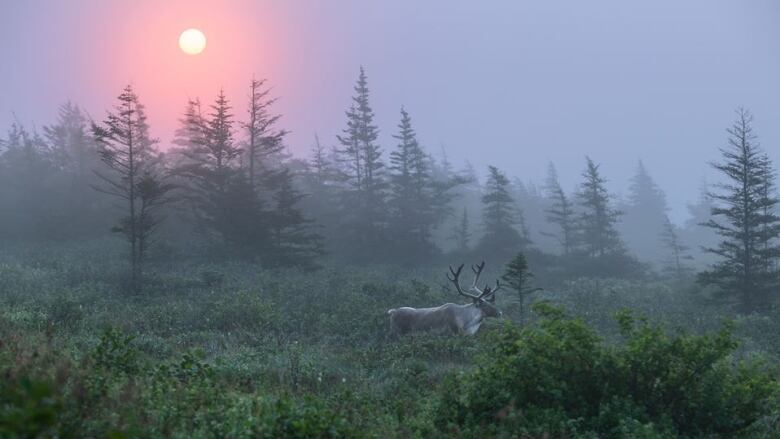Habitat protection alone won't save endangered caribou in B.C., recovery program director says
Federal, provincial, municipal and Indigenous governments need to work together, Darcy Peel says

It's clear that saving B.C.'s woodland caribou from becoming extinct is not as simple as protecting their habitat, according to the director of the provincial caribou recovery program.
A report published earlier this week said the province's approach of preserving caribou habitat has been failing and the caribou population will become extinct if changes aren't made soon.
It showed that caribou have lost twice as much habitat as they've gained over the past 12 years, with logging, road-building, wildfires and climate change mostly to blame.
Darcy Peel, director of the B.C. Caribou Recovery Program, says while the study helps understand exactly where the problems are, its findings were not surprising.
The solution isn't as simple as restoring lost habitats, he said, because the province has been doing that alongside other management measures, including predator management, for more than a decade.

He said, for example, a habitat protection program between 2005 and 2009 that focused on high-elevation winter habitats helped create a healthy caribou habitat in those areas — but failed to protect adjacent valley bottoms.
That caused a problem as the healthy caribou habitat was surrounded by strong moose, elk and deer populations, which attracted predators such as wolves and cougars, Peel said.
Peel said controlling predators isn't a sustainable option to saving the caribou, either.
"We've done predator management in some of these places ... but that's not viewed as a long-term solution," Peel said on CBC's Daybreak South. "So we're working with those communities that are often dependent on natural resource management jobs, like forestry, to build solutions that are going to mitigate any impact to them while also keeping caribou."
He said the province is looking into finding other solutions for caribou by learning more about the relationship between predator and prey, exploring conservation breeding and improving the management of ecotourism industries.
"We have a really good management of snowmobiles in the southern part of the province, [and] we're working toward that in the northern part," Peel said, "and we're working toward developing a similar solution for heli-skiing."
But in order for the solutions to be effective, he said everyone needs to do their part in preventing caribou from extinction.
"The logging industry, the mining industry, the recreational industry and the government, both federal, provincial, municipal and Indigenous, all have to be part of the solution," Peel said.
"This is a big problem that we're struggling with across the whole nation ... and nobody has done it successfully yet."
LISTEN | Darcy Peel talks about what the province has done to prevent caribou extinction on Daybreak South:
Subscribe to CBC Daybreak South on CBC Listen, and connect with CBC Kelowna on Facebook, Twitter and Instagram.
With files from Daybreak South